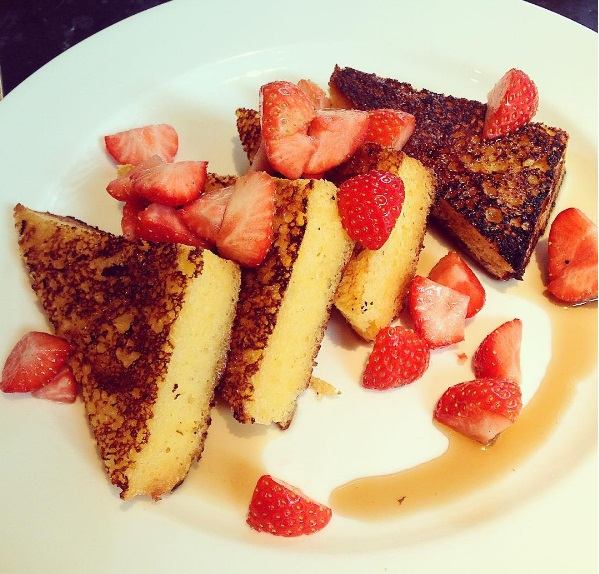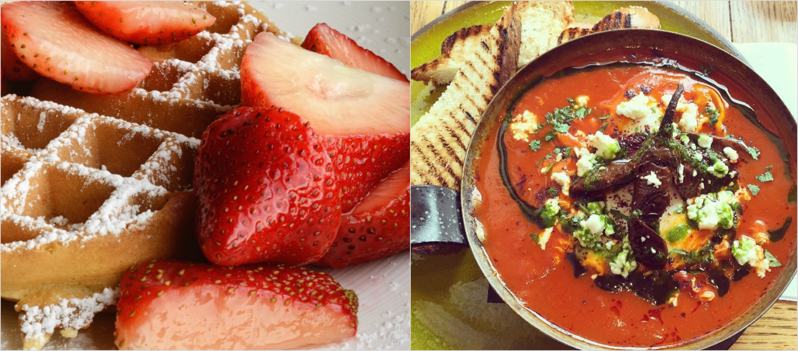A weekend without brunch is like a poached egg without its hollandaise sauce. For the majority of the British public, the weekend is incomplete without a brunch date, coupled with eggs Florentine and a bloody Mary or two to wash it all down. There is not a single reason we can find that can discredit the brilliance of brunch. A good brunch will have all its ingredients freshly sourced, squeezed and cooked with; and judging by the amount of ‘bits’ in your fresh orange juice, there is no debate to be had.
So let's take it back a notch and understand the history of a British Brunch.
Its origins and history is extraordinary and of course originates from our beloved British shores, until it became a popular pastime for the upper class elite of America. Take Gossip Girl, an American drama television series which depicted the very essence of brunch as a necessity of life:
"Is there really anything better than a lazy Sunday? Reading the paper in bed, sipping coffee, scrambling an egg or two. Yeah right, we Upper East Siders don't do lazy. Breakfast is brunch, and it comes with champagne, a dress code, and 100 of our closest friends and enemies."
Remember when the upper class of Britain, including the royal family would hunt foxes for their daily entertainment? Well brunch can be partly traced back to a moment in between the hunting when men and women would gather for a lavish and decadent early lunch, which included a wide variety of meats, egg dishes and alcohol. The word ‘brunch’ made its first appearance in an article in 1895 by Guy Beringer entitled ‘Hunter’s Weekly’. The article was to encourage the replacement of the heavier meals such as the Sunday roast which became a popular tradition in the UK. Only the following year was the article reprinted in a popular British periodical called ‘Punch’ and quickly spread to America by the 1920’s. Despite Brunch having originated from Britain, it was America who popularised the concept and according to the Oxford English Dictionary, ‘Brunch’ was university slang from the 19th century.
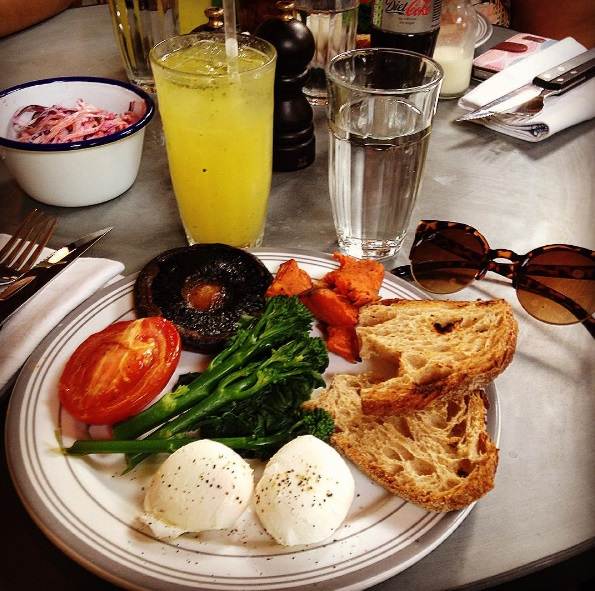
When you think of brunch and where it is most commonly celebrated, you automatically think of New York; the cosmopolitan capital of America. However, oddly, the city that became known for its brunches was Chicago; when actors would stop off between their long flights between New York and Los Angeles. Actors such as Helen Hayes and John Barrymore would brunch at the Pump Room at the Ambassador Hotel. Fast forward a number of years and after World War II, Sunday brunch became even more popular. Naturally, church attendance during the war rapidly decreased and families were looking for something else to occupy their time during a difficult and turbulent period. Subsequently, it became a time to relax and unwind and to enjoy one another’s company. The idea of brunch was as Guy Beringer emphasised to be a ‘lighter meal’ and the ability to put something together with little fuss required. Boxed cake, fresh orange juice and powdered hollandaise was the result and boy we’re pleased to have benefited in today’s day and age!
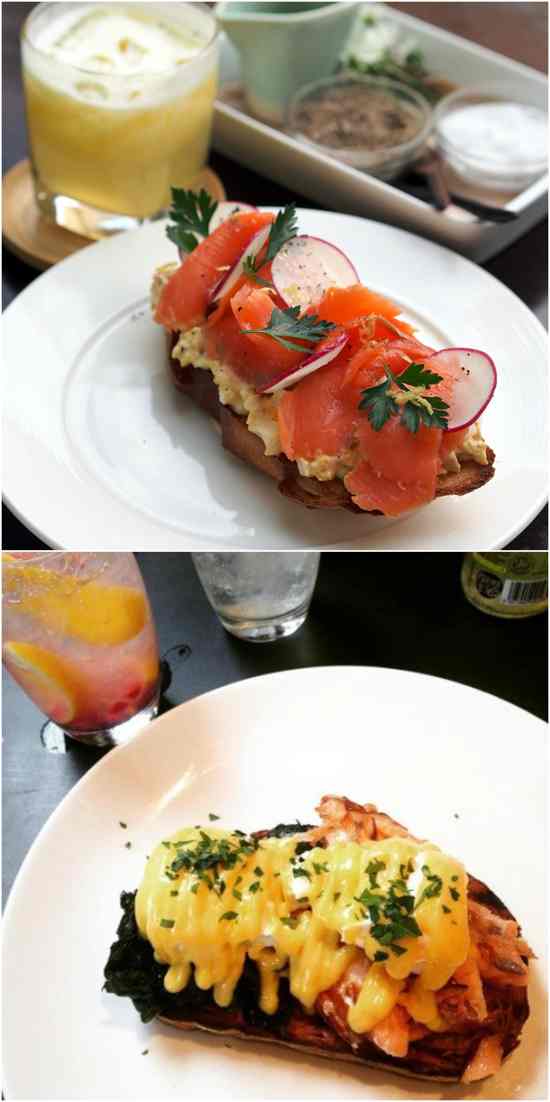
Top photo credit: commons.wikimedia.org/wiki/User:Takeaway
In America, brunch was considered the ‘hunt breakfast’; a meal that incorporated eggs and toast and a form of meat, such as venison and bacon; though, brunch was also heavily associated with college students as a ‘varsity meal’ for hangovers. Up until the 1950’s brunch was a way for the wealthy to access alcohol without the fear of being caught to use it as an excuse to day drink. By the 1950’s day drinking had worn off and had become gendered. Even as early as 1933, when the Gatsby-era was paving the way for Depression, Washington Post writer Ruth Chambers called brunch a ‘meal for professional women’.
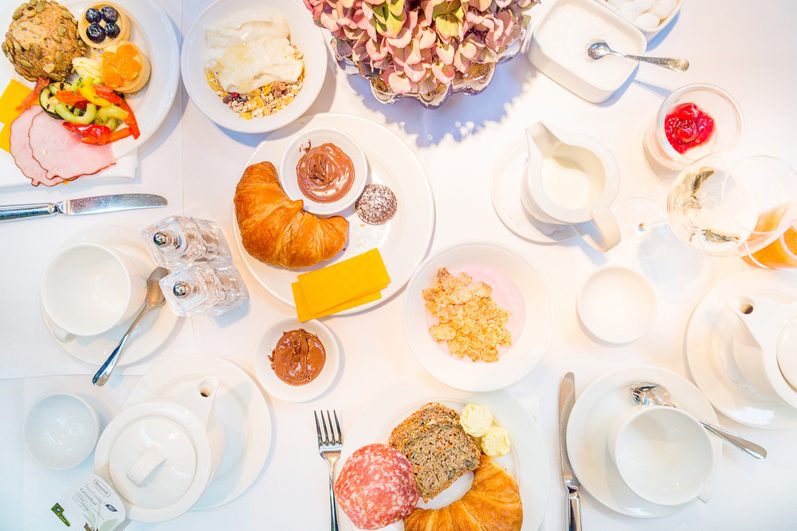
Photo credit: Ksenija Toyechkina/Shutterstock
Interestingly, despite the turbulent perception of brunch, Sociologist and author Farha Ternikar had argued that despite brunch being associated as a leisurely social activity, it was coupled with class and gender connotations. Google Trends analysed data since 2004 regarding the substantial increase in those searching for ‘brunch’ on the web. Ternikar emphasises that ‘brunch continues to grow anywhere there is disposable income or time’.
So before you become a serial bruncher, it may be worth understanding the history and where it originated. It may have become a popular pastime of American culture, but we Brits created the concept and proud of it too!
So next time you sit down to enjoy your boozy brunch, raise a glass to applauding British culture at its best!
